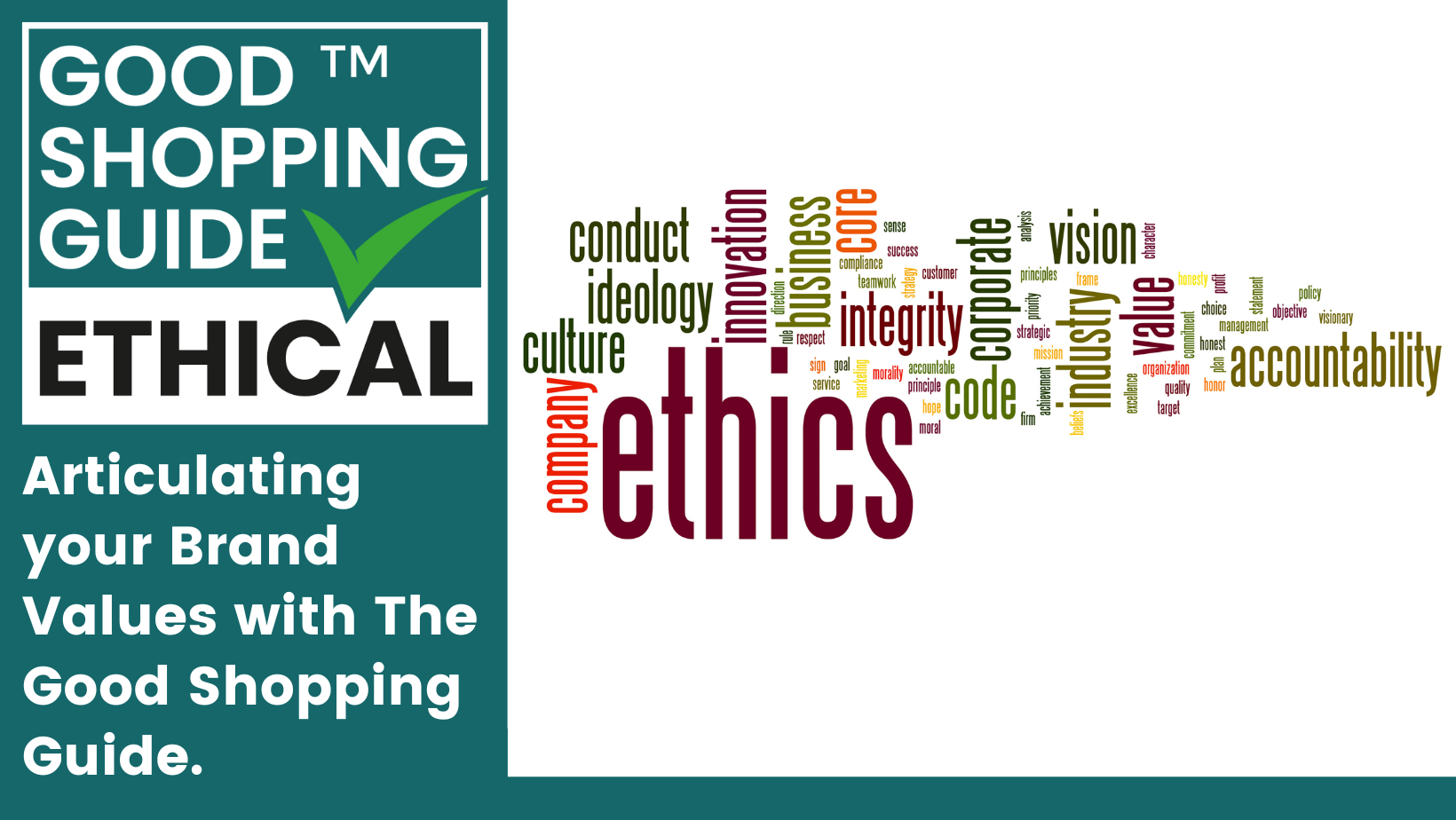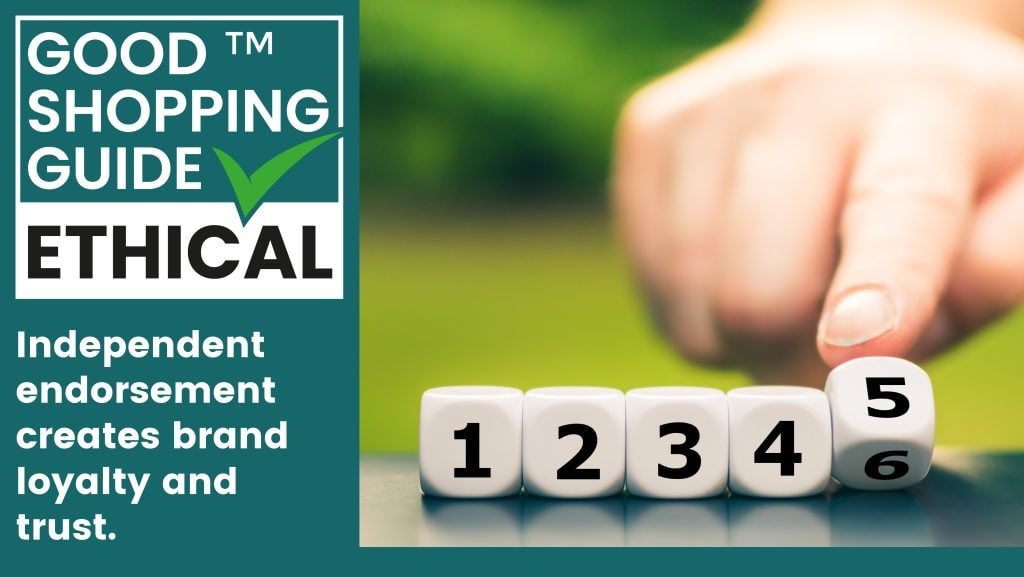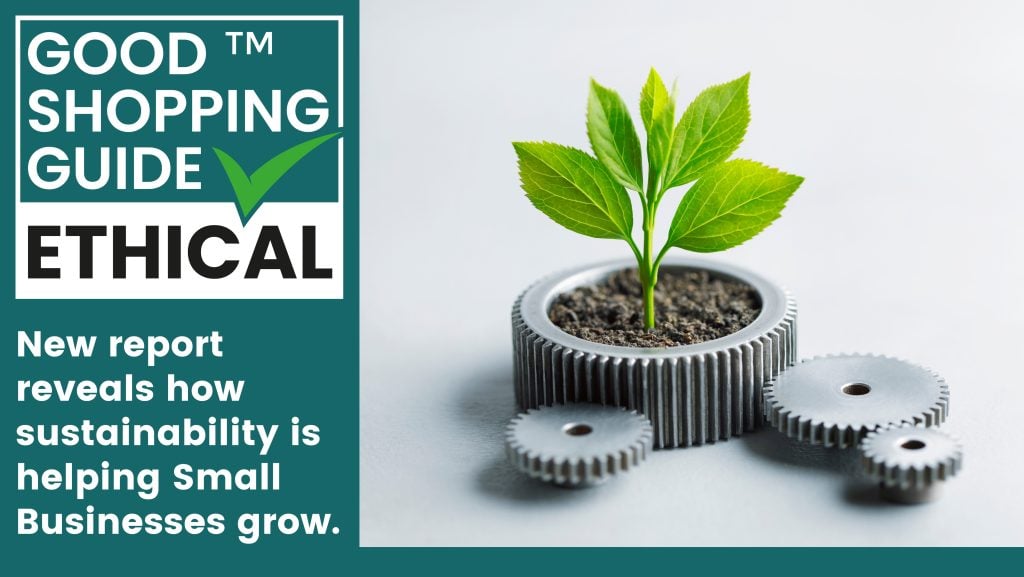Articulating your Brand Values

In today’s market, there is a demand for companies and brands to demonstrate their commitment to ethical practices. Our research at The Good Shopping Guide has identified five distinct ways companies and brands communicate their ethical values to consumers – from doing nothing to investing in independent research.
1. Doing Nothing
Unfortunately, some companies still fail to commit to sustainability issues – ignoring its impact on the planet is no longer acceptable. Every company should be working towards sustainable and ethical practices within its business operations and publicly sharing this information – obtaining certification or accreditation to validate its claims.
2. Misleading Self-Proclamations
Greenwashing is a term used to describe misleading claims about a company’s environmental credentials. Consumers are increasingly wary of companies making grand claims without substantial evidence or certification to back them up.
3. Self-certified or Untrusted Certifications
Some companies self-certify their ethical standards without consulting a third party. These certifications often lack credibility and can be mere internal paper-pushing exercises. Consumers can be cautious of self-certified claims and are increasingly looking for independent verification.
4. Single-Issue Certification only
While single-issue certifications are a step in the right direction, they only address one piece of the puzzle. Many small businesses focus on single issues, such as carbon offsetting or fair trade, but do not consider the broader ethical picture. For a complete view, it is important to look at accreditations that cover multiple ethical aspects.
5. Comprehensive Ethical Accreditation
Ethical Accreditation from The Good Shopping Guide evaluates multiple ethical issues and considers single-issue certifications while looking at the wider picture. Crucially, in addition to assessing companies’ ethical and sustainability policies, we also research and report on unethical business practices, so there is no room for greenwashing! Our findings are free and accessible to everyone on our website. Our Ethical Accreditation is understood by consumers, providing a clear and trusted mark of a company’s ethical commitment.
Conclusion
It is crucial that consumers get the information they need. Many leading ethical companies like Octopus, Aviva and Neal’s Yard Remedies have achieved independent Ethical Accreditation with many more in the process of applying. These companies have been through a comprehensive ethical screening and are able to articulate their ethical values to their customers with the help of our ETHICAL mark, helping their customers make informed choices and a positive impact on the planet.
Complete a Free Initial Assessment form for quick feedback from our research team on your potential for accreditation, or contact [email protected] with any further questions.
This is a part of a series written by Kat Alexander – one of the Directors of The Good Shopping Guide – to share important information about The Good Shopping Guide and its work supporting and promoting the best ethical companies.
Share
Related articles

Harvard Business: Effectiveness of 3rd-Party Accreditation
Harvard study reveals that ethical labels boost sales by 13–14%, but only when backed by credible verification.

5 Powerful Reasons Leading Brands Choose Ethical Accreditation
Get recognised for doing GOOD. Ethical Accreditation helps values-led brands build trust, attract talent, and stand out where it matters most.

The Willow Review: How Ethical Accreditation Can Support
Sustainability is driving SME growth. Discover what The Willow Review reveals—and how Ethical Accreditation helps businesses stand out.